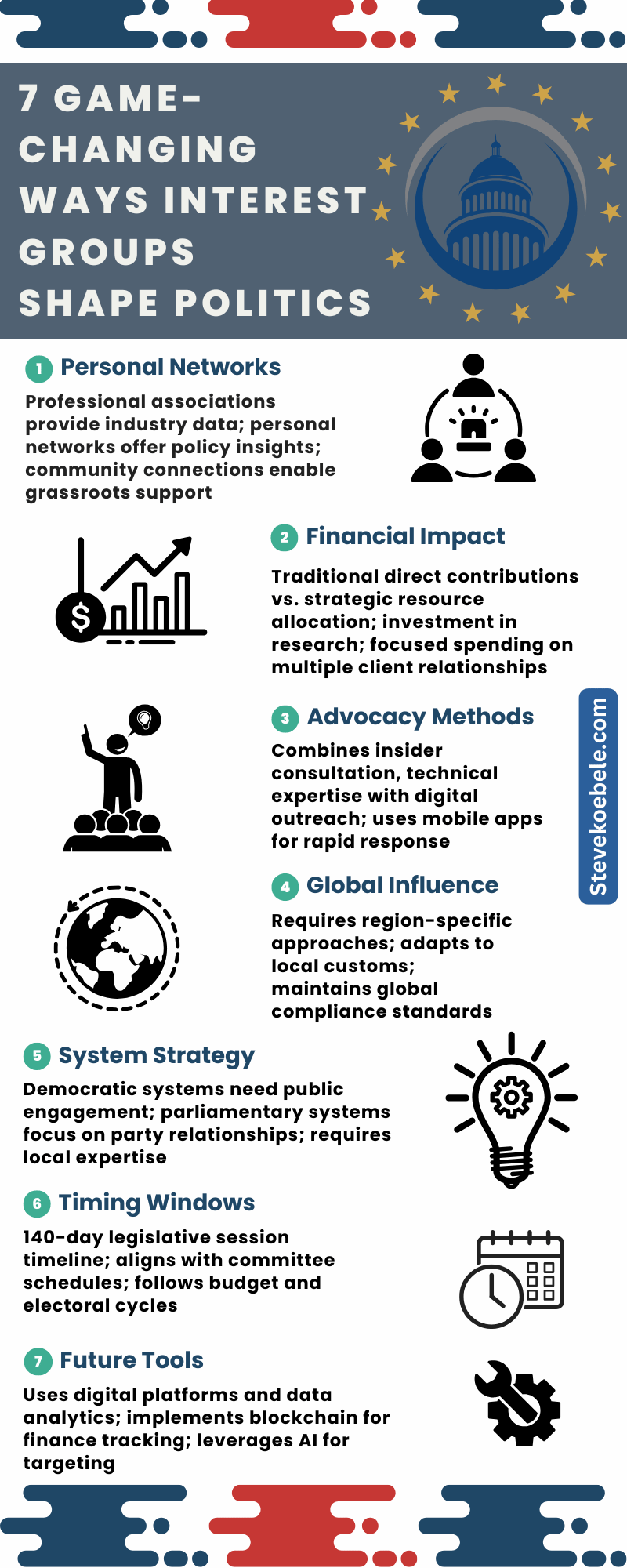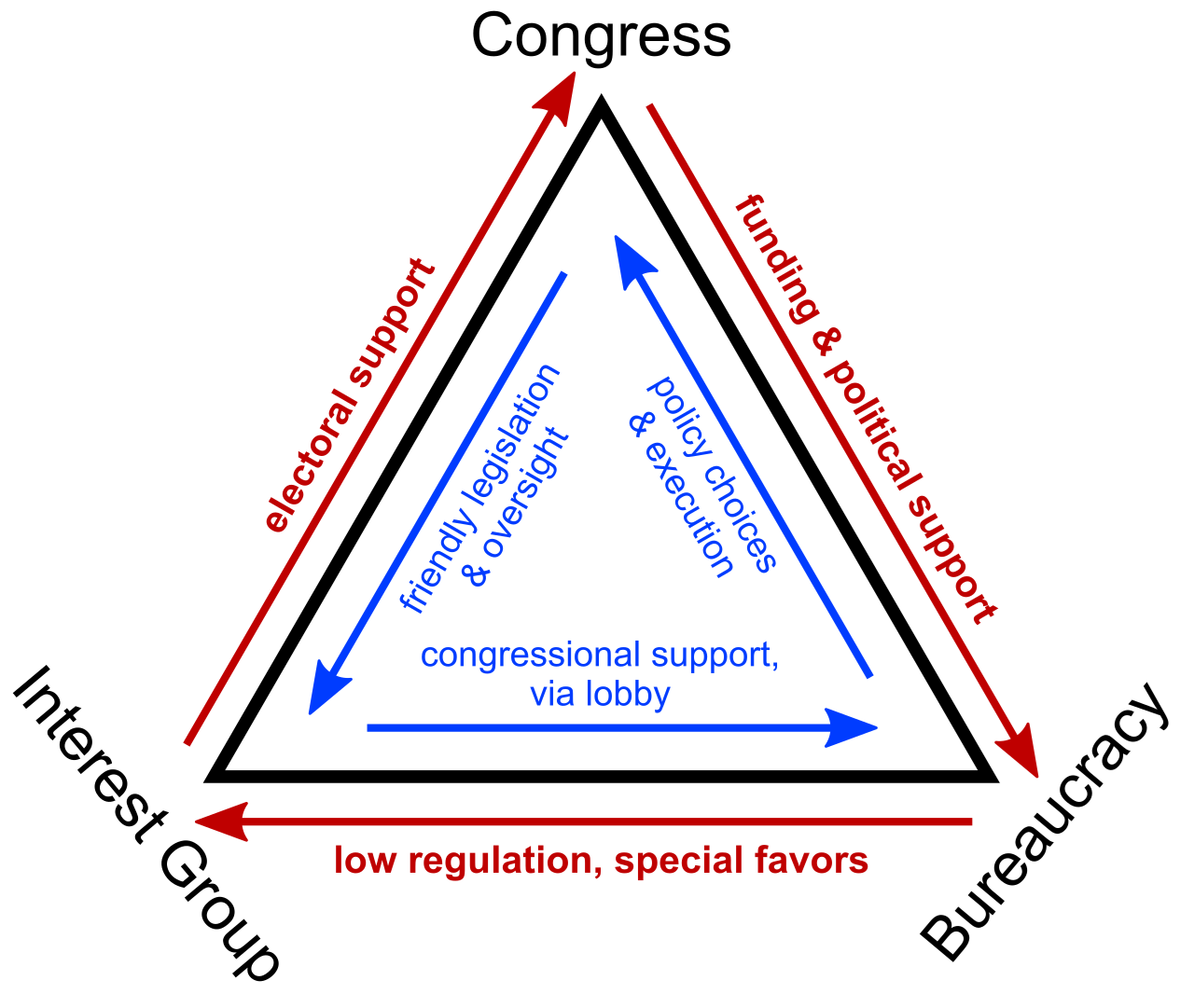
With taxpayer spending on lobbying in Texas soaring from $41 million to $75 million between 2017 and 2021, the role of a lobbyist in Austin TX has become increasingly crucial in shaping public policy. From healthcare to energy policy, education to technology regulations, interest groups wield significant influence in ways that extend far beyond traditional lobbying. Their impact reaches deep into the legislative process, affecting everything from state preemption of local ordinances to statewide public policy initiatives. Understanding these dynamics reveals how modern political advocacy transforms from simple representation into strategic policy partnerships.

Personal connections drive the engine of political influence in the Texas Capitol. These relationships are critical to determining which public policies succeed and which fail. They shape the flow of information between government officials and interest groups.
Lobbyists build trust through years of consistent interactions with legislators. A successful Texas lobbyist is effective at sharing industry knowledge that helps shape better policies. This exchange creates lasting partnerships that benefit both sides.
Relationship Type | Key Benefits |
Professional Associations | Access to industry data, expert testimony, technical guidance |
Personal Networks | Early policy insights, informal feedback channels, coalition building |
Community Connections | Grassroots support, local impact stories, constituent feedback |
Iron triangles form naturally in Texas politics and lawmaking. These relationships connect three key players: lobbyists, lawmakers, and agency officials. Each group relies on the others to achieve their goals.

Personal connections drive the engine of political influence in the Texas Capitol. These relationships are critical to determining which public policies succeed and which fail. They shape the flow of information between government officials and interest groups.
Lobbyists build trust through years of consistent interactions with legislators. A successful Texas lobbyist is effective at sharing industry knowledge that helps shape better policies. This exchange creates lasting partnerships that benefit both sides.
Relationship Type | Key Benefits |
Professional Associations | Access to industry data, expert testimony, technical guidance |
Personal Networks | Early policy insights, informal feedback channels, coalition building |
Community Connections | Grassroots support, local impact stories, constituent feedback |
Iron triangles form naturally in Texas politics and lawmaking. These relationships connect three key players: lobbyists, lawmakers, and agency officials. Each group relies on the others to achieve their goals.
Professional expertise plays a crucial role in relationship building. Lobbyists in Austin often specialize in specific policy areas. Their deep knowledge helps legislators understand complex issues. This expertise makes them valuable partners in the development of Texas laws, administrative rules, and public policy.
Trust develops through consistent, reliable, and honest interactions. Successful lobbyists maintain their credibility thoughtfully and carefully. The best Texas lobbyists provide accurate information and acknowledge uncertainties. This approach builds long-term relationships that survive political changes.
When it comes to Texas politics, the relationship between money and influence isn't quite what most people imagine or have been told. While conventional wisdom might suggest that lobbying success simply follows the money, the reality in Austin's political landscape is far more nuanced. Effective lobbyists understand that financial resources work best as part of a comprehensive strategy.
Traditional Approach | Modern Strategy |
Direct financial contributions | Deliver needed campaign assistance and relevant research |
Generic influence attempts | Research-backed policy proposals with clear impact metrics |
Consider how successful advocacy groups approach their work in the Texas Capitol. Rather than relying solely on campaign contributions, they invest significantly in research and analysis. This approach transforms traditional lobbying into evidence-based advocacy – a shift that's proving increasingly effective in today's public policy landscape.
For instance, a top Texas lobbyist may highlight job creation numbers in key districts, showing the market impacts of proposed regulations. The lobbyist may demonstrate how new public policy proposals would positively improve economic development in specific Texas legislative districts. These concrete examples resonate with legislators and executive branch officials.
The most effective advocacy work happens when financial resources support well-researched positions and align with community interests. A campaign contribution is never tied to requested action. Consider credible strategic investments rather than simple spending.
Direct lobbying receives focused investment for maximum impact. Professional lobbyists maintain multiple client relationships through careful time and resource management.
Modern advocacy combines traditional insider tactics with innovative outreach strategies. Successful programs leverage both approaches and use tactical methods based on political context.
Digital advocacy transforms traditional outreach methods. Social media campaigns reach broader audiences. Online tools motivate and mobilize supporters. These platforms amplify policy messages.
Public narrative shaping requires sustained effort. Groups invest in long-term message development. Stakeholders and communications professionals build relationships with journalists and influencers. These connections help tell compelling public policy stories.
In today's interconnected world, influence doesn't stop at state or national borders. The Texas economy is the eighth largest in the world, larger than countries like Canada, Italy, and Russia. Texas organizations are often on the global stage, where the rules of engagement shift dramatically from one region to another. It's like playing chess simultaneously on multiple boards with unique rules.
The complexity of international advocacy becomes clear when we look at how multinational corporations handle cross-border initiatives. Consider a technology firm expanding into Asia. They are not just managing different regulations but experiencing various cultural nuances to business relationships, government interactions, and public policy development. Their teams coordinate across time zones, adapting their message for each audience while maintaining consistent global standards.
The most successful organizations approach international influence with a blend of global vision and local insight. They understand that what works in Austin might need significant adaptation in Berlin or Taiwan, yet certain fundamental principles of relationship-building and credibility remain constant.
Think of political systems as different playing fields – each with its own rulebook. Texas organizations venturing beyond state borders quickly learn that what works in Austin might need significant adjustment overseas. Understanding these differences is crucial for advocacy success.
System Type | What Really Works |
Democratic (U.S. Style) | Public engagement, transparent processes, constituent feedback |
Parliamentary | Party-focused relationships, committee expertise, ministerial networking |
In democratic systems like ours in Texas, success is often driven through public transparency and engagement. Consider how the energy sector may advocate the effective use of town halls and public hearings to build support for new projects. They've mastered the approach of balancing public disclosure with strategic advocacy.
Let’s take a hypothetical example of constructing a large industrial facility in West Texas. Successful companies typically begin by drafting a written action plan and arranging informational town hall meetings months before any formal hearings. They bring in local economic experts to discuss job creation, environmental specialists to address wildlife concerns, and technical teams to explain noise, traffic, and visual impacts. These sessions often include interactive maps and artistic renderings so residents can see precisely how projects might affect their properties.
Parliamentary systems, however, require a different playbook. Texas lobbyists working in countries like the UK or Canada have learned to focus more on party relationships and committee work. It's less about public campaigns and more about building strong connections within existing party structures, such as the executive branch..
Quick Cultural Tips for Global Success:
The bottom line: Smart advocates know their system shapes their strategy. Whether you're working in Austin's democratic system or navigating parliamentary structures abroad, success comes from adapting to the local political landscape while maintaining professional integrity.
Success in advocacy often depends on perfect timing. Understanding political cycles shapes strategy effectiveness. Smart groups plan their moves around key calendar events.
Timing Element | Strategic Importance |
Electoral Cycles | Campaign timing, voter engagement, policy windows |
Legislative Calendar | Strategic session deadlines, committee hearing dates |
The Texas legislative session's 140-day timeline creates specific opportunity windows. Pre-session planning is crucial for success at the Texas Capitol. To significantly increase the potential for success, the best Texas lobbyists have been engaged and working for many months prior to the “official” January start date of the 140-day regular session. During the official legislative session, stakeholders must align their advocacy work with legislators’ presence in Austin, committee schedules, budget discussions, and voting calendars.
Effective advocacy requires monitoring legislative calendars and leveraging public opinion trends, ensuring initiatives launch optimally for maximum policy impact.
Advocacy continues evolving with technological advances. New tools reshape lobbying and advocacy strategies. Stakeholders are adapting to changing political landscapes.
Global trends influence local advocacy work. Groups build international networks. They share resources across borders.
Virtual advocacy grows increasingly important. Texas organizations embrace remote engagement tools. They maintain effectiveness across digital channels.
Success requires constant adaptation to change. Groups invest in new capabilities. They experiment with emerging technologies.
Strategic public policy influence requires more than just understanding the legislative process and executive agency functions – it demands a commitment to transparency, ethical conduct, and genuine customer service.
Whether advocating for healthcare reform, environmental protection, or business interests, successful public policy advocacy is built on experience, a strong record of success, trust, and credibility.
With more than thirty years of professional advocacy experience in both Texas and Washington, D.C., Steve Koebele exemplifies how a lobbyist in Austin, Texas, can successfully lobby for the right causes while upholding professional integrity. Call us today at (512) 646-7406 to discuss your cause.